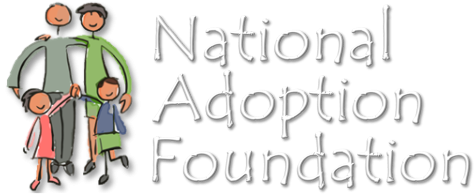
Foster parenting is hard work. Taking in a child that does not have a stable background can bring with it a host of challenges. Foster children require special care, plenty of love, and consistency that allows them to let their guard down.
Foster child adoption is growing steadily. It makes sense for a foster family to have first rights to adoption once a child becomes free to adopt. This is especially true if the child and the foster parents have had the opportunity to form strong attachments to one another.
While daily life might not change for foster parents and child who is newly adopted, there are some things that you might want to know as you embark on a more permanent road to a loving relationship. Here are some things to consider as you adopt a foster child:
1. There will be no more social welfare checkups.
Once the adoption has been finalized, there is no need for social services to continue to monitor your household happenings, as the child is now legally your responsibility. As such, it is imperative that you continue to provide a consistent and loving home for the child, as there may be some feelings of grief or loss over what could not be with his or her biological parents. Be patient and understanding that there may be a time of adjustment as they learn to deal with their new permanent situation.
2. You get to make all of the decisions regarding care.
As you now have legal responsibility for this child, you are charged with making all decisions pertaining to care. Medical treatment, school attendance, and even religious practice will become your responsibility as you navigate the permanence of parenting. If you lack confidence in making these decisions, keep in mind that your child is dependent on you for care, consistency, and love - things they may not have received in the presence of anyone else. You are their rock.
3. You are responsible for welfare, and liable for legal issues.
If you have adopted a child who has had trouble with the law before, it might be beneficial that you know you are now legally responsible for all actions incurred while the child is in your care. Any offenses committed as a minor will be on your plate, and you must work to resolve any issues and disputes that may arise. Parenting is, at times, frustrating and demanding work, requiring a great deal of patience and resolve. Keep your chin up, and hold in your mind the thought that you are making a big difference in the life of this young one. Don't give up.
4. You may be in for an emotional roller coaster.
This child has experienced trauma and loss, which will be difficult to let go of as they begin to heal in your family. They will likely experience many strong emotions as they are torn between wanting what can't be and accepting and coming to love what has transpired in their life. Learning to be a sympathetic ear and a firm hand of discipline will be the best thing that you can do for your child as they learn to be a member of your family.
5. The buck stops with you.
Many foster parents are initially trepidatious as they begin to find their footing with discipline. As you form a relationship with this child, don't be afraid to let them know who's boss. You need the hierarchal structure, and so do they. Let them know that there are consequences for certain behaviors, and that you put systems in place because ultimately, you want success for them.
Foster child adoption is not easy, but it is extremely rewarding to make a difference in the life of a child. If you are looking to adopt a foster child, go into this relationship with your eyes and heart wide open, and you will find your way. Best of luck to you as you prepare for this amazing journey!

 Owner/Editor - Chris Chmielewski
Owner/Editor - Chris Chmielewski